Conference Program and Speaker Bios: Harnessing Human Capital for Growth and Development in Kenya
Yale Economic Growth Center (EGC) and Yale Inclusion Economics (YIE) hosted a dialogue between researchers, policymakers, and the private sector on how rigorous evidence can inform strategies to drive human capital investments, gender equality, and economic transformation in Kenya and the region. The event featured work conducted by EGC through the Gender and Growth Gaps project on gendered labor market distortions, by YIE on digital inclusion, and by a joint EGC-YIE project focused on expanding childcare by extending access to enhanced public preschools for younger children, while bringing in peers to discuss policies and programs at scale, including time use data in policymaking and assessing fiscal investments and returns.
Agenda
Arrival and Registration (8:30 - 9:30 am)
Welcome and Opening Address (9:30 - 9:40 am)
Session 1: Gender Equality, Economic Growth & Development (9:40 - 10:45 am)
A growing body of evidence shows that sidelining women from the labor market can be costly, and that macroeconomic productivity can suffer in labor markets where women’s talents and skills are not matched to suitable opportunities. This session brought together macro- and microeconomic perspectives to shed light both on the relationship between gender gaps and economic transformation and pathways to understand and address underlying barriers in the modern economy.
Presentations:
-
Dr. Rohini Pande (Yale University): "Gender Gaps and Economic Growth: Why Haven't Women Won Globally (Yet)?"
-
Ms. Aishwarya Lakshmi Ratan (Yale University): "The Aggregate Productivity Losses of Gendered Labor Market Distortions: The Global Gender Distortions Index”
Panel Discussion:
-
Dr. Nancy Nafula (KIPPRA)
-
Dr. Rohini Pande (Yale University)
-
Moderator: Ms. Aishwarya Lakshmi Ratan (Yale University)
Morning Coffee Break (10:45 - 11:15 am)
Session 2: Enhancing Child Development and Women’s Socioeconomic Advancement through Expanding Public Preschool: Insights from Research and Policy (11:15 am - 1:15 pm)
This session highlighted emerging insights from a multi-institutional policy-research collaboration conducting an experimental field study of an innovative public preschool program in Kenya’s Tharaka Nithi County (TNC). It also brought together policy experts and thought leaders to collaboratively explore high-potential pathways to expand the intervention approach based on the evidence generated to enable development outcomes at scale across TNC and beyond.
Session Framing Remarks:
-
Ms. Deanna Ford (Yale University)
-
Ms. Grace Wasike (State Department for Gender and Affirmative Action, Kenya)
Evidence from the Field – Project Insights and Policy Reflections:
-
Dr. Judith Waudo (Kenyatta University)
-
Dr. Simon Onywere (Kenyatta University)
-
Mr. Brian Murithi Humphrey (Kenyatta University)
-
Ms. Emma Lambert-Porter (Yale University)
-
Ms. Dorothy Naivasha (Tharaka Nithi County Government)
Panel Dialogue – The Role for Research in Policy Formulation:
-
Ms. Dorothy Naivasha (Tharaka Nithi County Government)
-
Dr. Joy Kiiru (Gates Foundation)
-
Dr. Judith Waudo (Kenyatta University)
-
Moderator: Dr. Michelle Neuman (Yale Inclusion Economics)
Lunch (1:15 - 2:30 pm)
Session 3: Data, Programs, Policies and Implementation - Enabling Successful Ideas to Scale (2:30 - 3:30 pm)
The pathways from successful pilot tests to scaled programs that sustain impact are fraught with challenges. In this session, we explored how data, including time use survey data and budgetary information, can be used to design policies and shape priority public investments on an ongoing basis. Panelists discussed how to bridge these gaps between data, tested programs, and Ministry-led policy design and implementation.
Panel Discussion:
-
Dr. Eldah Onsomu (KIPPRA)
-
Mr. John Kinuthia (Bajeti Hub)
-
Dr. Macdonald G. Obudho (Kenya National Bureau of Statistics)
-
Hon. Naisula Lesuuda (Member of Parliament for Samburu West, Kenya)
-
Ms. Rozina Haque (BRAC International)
-
Moderator: Ms. Aishwarya Lakshmi Ratan (Yale University)
Session 4: Engagement in the Rising Digital Economy (3:30 - 4:30 pm)
This session presented a framework designed to help policymakers and practitioners design programs that connect women to opportunity in the digital economy alongside presentations from organizations taking a gender-intentional approach to development and delivery of digital products.
Presentation:
-
Dr. Simone Schaner (University of Southern California): “Closing Digital Gender Gaps: A Systems Framework for Connecting Women”
Panel Discussion:
-
Ms. Nena Sanderson (M-KOPA)
-
Mr. Alex Mwaura (Digital Green)
-
Dr. Simone Schaner (University of Southern California)
-
Moderator: Ms. Adem Esther (Connected Women, GSMA)
Afternoon Coffee Break (4:30 - 5:00 pm)
Keynote Session – Universities, Government and the Private Sector: Partnerships and Pathways from Research to Impact (5:00 - 6:15 pm)
This keynote session featured leading voices from research, policy, and industry including:
-
Ms. Dorothy Naivasha (Tharaka Nithi County Government)
-
Dr. Rohini Pande (Yale University)
-
Dr. Benson Wairegi (Non-Executive Director, HF Group; Chairman, Housing Finance Bancassurance Intermediary (HFBI); Former Chancellor, Kenyatta University)
-
Ms. Grace Wasike (State Department for Gender and Affirmative Action, Kenya)
-
Dr. Janette Yarwood (Yale University)
-
Moderator: Ms. Deanna Ford (Yale University)
Evening Reception (6:15 - 7:30 pm)
Speaker Biographies
Ordered by last name alphabetically
Adem Esther
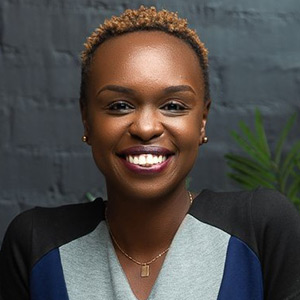 Adem Esther
Adem Esther
Adem Esther is a seasoned professional serving as the Senior Insights and Market Engagement Manager within the Connected Women program (Digital Inclusion) in GSMA . In this capacity, she collaborates closely with mobile operators across Africa, to enhance the outreach to women micro-entrepreneurs, especially in the rural areas, focusing on fostering digital and financial inclusion, through informed research and strategic initiatives.
With an impressive career spanning close to 10 years in both the Telecommunication and NGO sectors, Adem has cultivated a wealth of expertise. Prior to her tenure at GSMA, she made significant contributions to organizations such as BRAC International, Safaricom PLC, and Sterling Capital. In these roles, she led process automations and worked on driving the expansion of digital financial services to empower women entrepreneurs, particularly those at the base of the pyramid in rural areas.
Her dedication and accomplishments have garnered international recognition, with the Global CIO Forum honouring her with the prestigious ‘Next Generation Global CIO’ awards for two consecutive years: 2022 and 2023. She has a master’s degree in project management from Liverpool John Moores University (UK), building upon her strong academic foundation in Finance from Strathmore University, where she earned her Bachelor's Degree. Additionally, she holds a CPA (K) and UI/UX qualification.
Deanna Ford
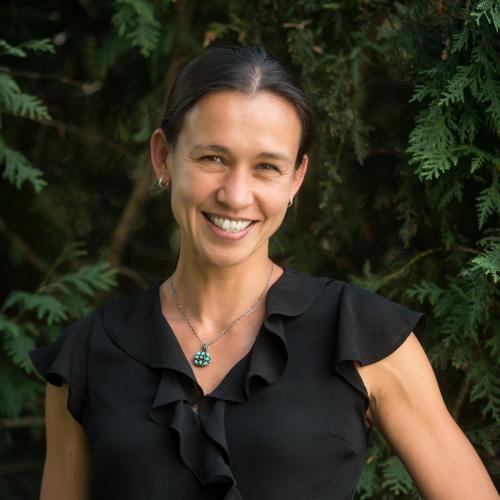
Deanna Ford is the Managing Director of Yale Inclusion Economics and Senior Adviser at the Economic Growth Center. She also worked with Yale’s Tobin Center for Economic Policy as a Senior Adviser. Previously, she was the Executive Director of Evidence for Policy Design at Harvard Kennedy School, where she led growth, partnership development, and organizational strategy of a team of over 50 based at HKS and abroad. Her particular interests lie in building strong inroads for research and evidence to contribute to concrete policy improvements that benefit the lives of citizens worldwide. Deanna has also worked for the International Monetary Fund, Agora Partnerships, the World Bank, the Asian Development Bank, the Center for Research on Children in the U.S. and the Fabretto Children’s Foundation. She has lived in Nicaragua, Zambia and Rwanda. Deanna completed her Master of Public Policy at Georgetown University and her B.A. in economics at Princeton University.
Rozina Haque
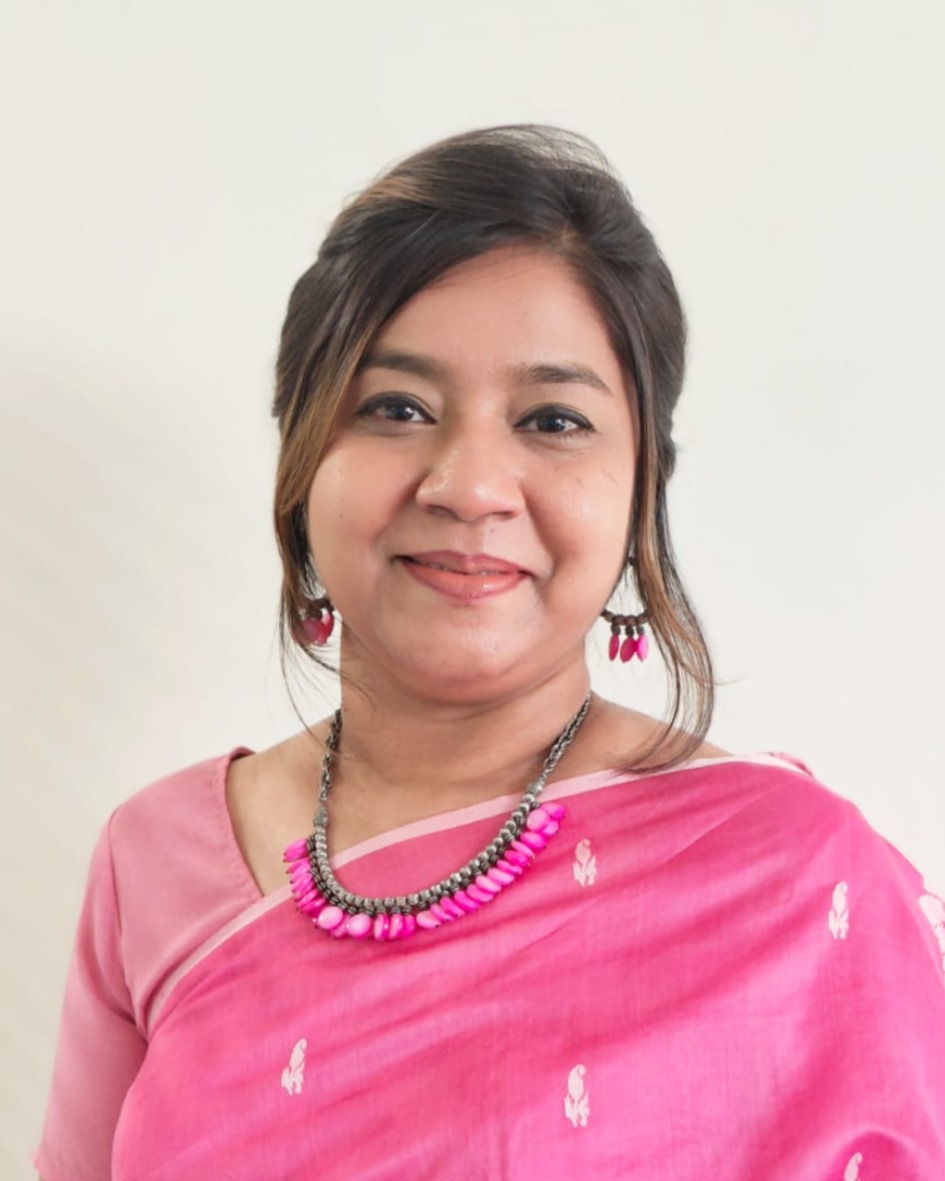
Rozina Haque is the Director of the Ultra-Poor Graduation and Livelihoods Program at BRAC International. She brings over 22 years of invaluable experience in international development, with a core focus on fostering economic empowerment and promoting social inclusion. Her extensive expertise spans various areas, including devising innovative strategies for poverty alleviation, managing large-scale multi-donor programs, designing and launching initiatives across diverse contexts, and offering technical support to both development organizations and government. Additionally, she possesses expertise in thematic areas of climate change adaptation, disability inclusion, humanitarian response, urban poverty and gender. An advocate for gender-responsive workplaces, Rozina actively promotes and fosters women's leadership, and challenges gender stereotypes and norms through a gender transformative approach. She provided strategic direction to BRAC's flagship programme, the Graduation approach, that aims to eradicate extreme poverty from the country, which by 2024 had impacted the lives of approximately 9 million ultra-poor people in Bangladesh since its inception in 2002.
Currently, she spearheads the strategy and oversees the implementation of the Ultra-Poor Graduation Programme in BRAC International, operating in Uganda and Tanzania. She plays a significant role in expanding the Graduation approach globally to address the poverty agenda and provides technical assistance to different governments, donors and non-government organisations on economic inclusion initiatives in the areas of proposal development, assessment, programme designing, budgeting, implementation, M&E and capacity development of staff. In addition to Uganda and Tanzania she extended her technical support to various other countries including Liberia, Afghanistan, Kenya, Egypt, Yemen and Nepal, providing assistance in designing their poverty alleviation programme. Furthermore, she is leading the efforts to strategize and streamline the livelihood components of other programs at BRAC International to address the diverse needs of vulnerable population in various contexts.
In addition to her professional engagements, Rozina serves as a guest lecturer at BRAC University, imparting knowledge on poverty and Graduation approach as part of the Master's in Development Studies (MDS) course work.
Rozina holds a Master’s degree in Development Studies from BRAC University and a Master’s in Business Administration from Asian University in Bangladesh.
Joy Kiiru
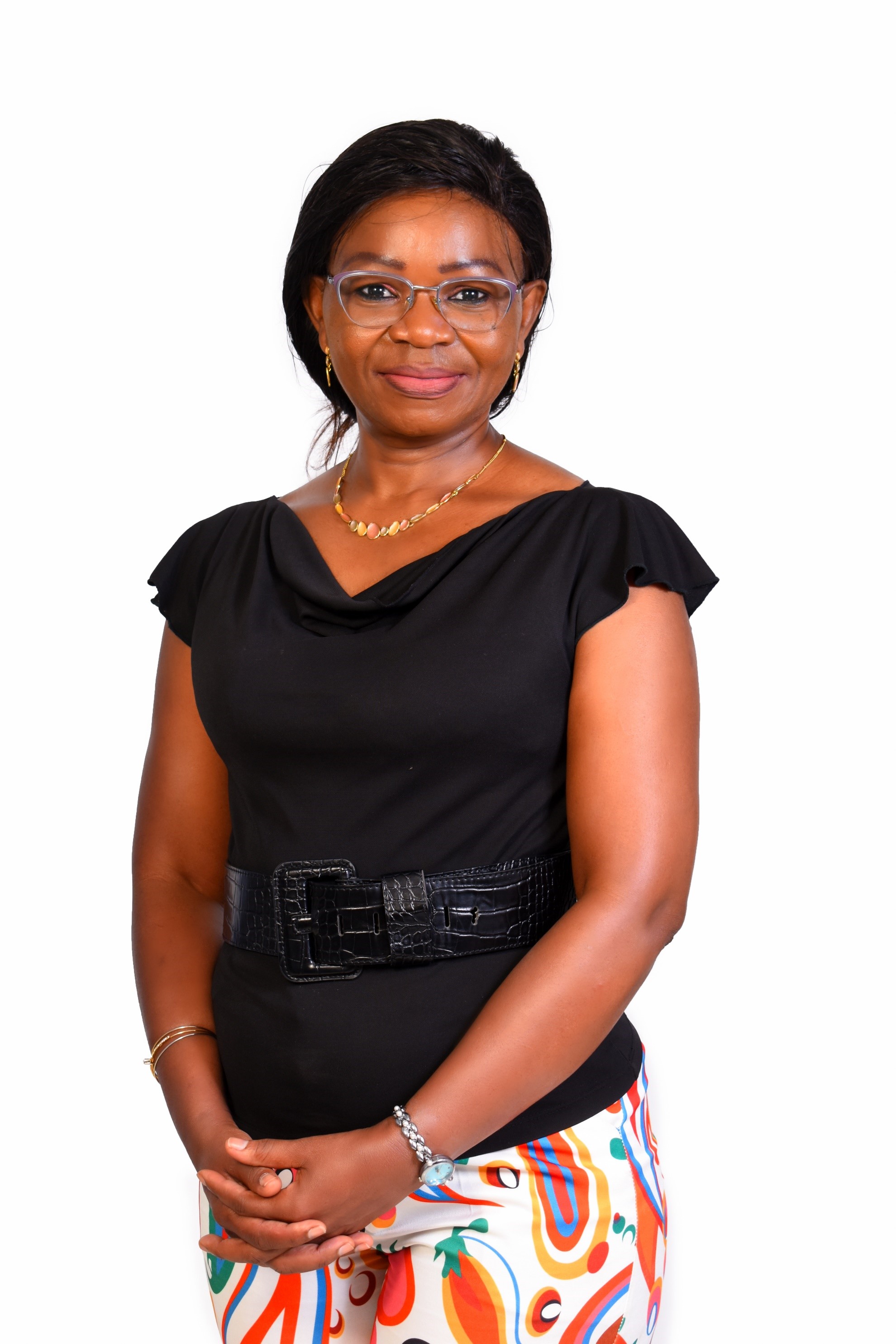 Joy Kiiru
Joy Kiiru
Dr. Joy Kiiru is currently Senior Women's Economic Empowerment Advisor for Kenya, for Gates Foundation. She is currently on a leave of absence from the University of Nairobi, where she serves as a Senior Lecturer in the Department of Economics and Development Studies. Dr. Kiiru holds a PhD in Economics from the University of Bonn, Germany. Her research focuses on development economics, with particular emphasis on financial inclusion, rural development, and the economics of gender and social inclusion. She has worked with a range of organizations, including CIMMYT, FAO, TRAPCA, UN Women, J-PAL, and Chemonics International. Outside of her professional work, Dr. Kiiru is an active member of her Rotary Club, where she contributes to community projects in education, health, and the environment.
John Kinuthia
 John Kinuthia
John Kinuthia
John Kinuthia is the Deputy Executive Director at Bajeti Hub, bringing over 13 years of experience in public finance and decentralization. He leads the design and execution of the organization’s programs at both national and county levels, advancing transparency, inclusion, and equity in how Kenya raises and spends public resources. John’s work is grounded in rigorous research that also informs Bajeti Hub’s technical assistance and policy engagement with government institutions and civil society actors. His research covers a wide range of public finance issues, including equitable revenue sharing, impact of public debt on social services, social protection, budget credibility, public deliberations, health financing, and sub-national budget transparency. Prior to joining Bajeti Hub, John worked at Twaweza East Africa, where he played a key role in developing the Kenya Budget Explorer, an innovative platform that enhances public access to budget information. Outside of his professional work, John enjoys cycling, farming, and exploring his passion for history and geography.
Aishwarya Lakshmi Ratan
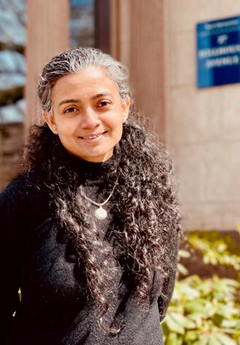 Aishwarya Lakshmi Ratan
Aishwarya Lakshmi Ratan
Aishwarya Lakshmi Ratan serves as the Deputy Director of the Economic Growth Center since March 2022. Prior to the EGC, Aishwarya managed research and evaluation investments for the Bill & Melinda Gates Foundation’s Women’s Economic Empowerment strategy, and for the Foundation’s Financial Services for the Poor team. Her previous experience includes running a financial inclusion research initiative at the EGC from 2011-2014 in partnership with Innovations for Poverty Action, leading the Monitoring, Research and Evaluation unit at Women for Women International and working as an Associate Researcher at Microsoft Research India. Aishwarya earned a bachelor’s degree in economics and women’s studies from Wellesley College and a master’s degree in public administration and international development from the Harvard Kennedy School.
Emma Lambert-Porter
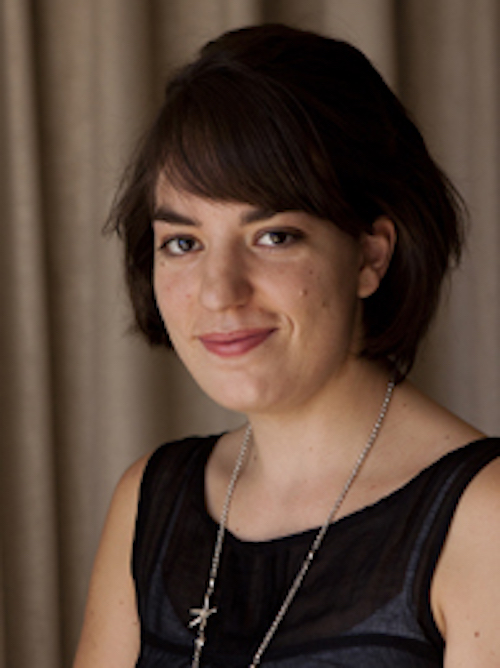
Emma Lambert-Porter is the Research Lead, Africa (Consultant) for Yale Economic Growth Center. She was formerly a Senior Research Associate for Abdul Latif Jameel Poverty Action Lab (J-PAL) and a Research Manager for Innovations for Poverty Action (IPA). She has master’s degrees in Public Administration from the London School of Economics and from Columbia University, and a bachelor’s degree in Business Science from the University of Cape Town.
Hon. Naisula Lesuuda
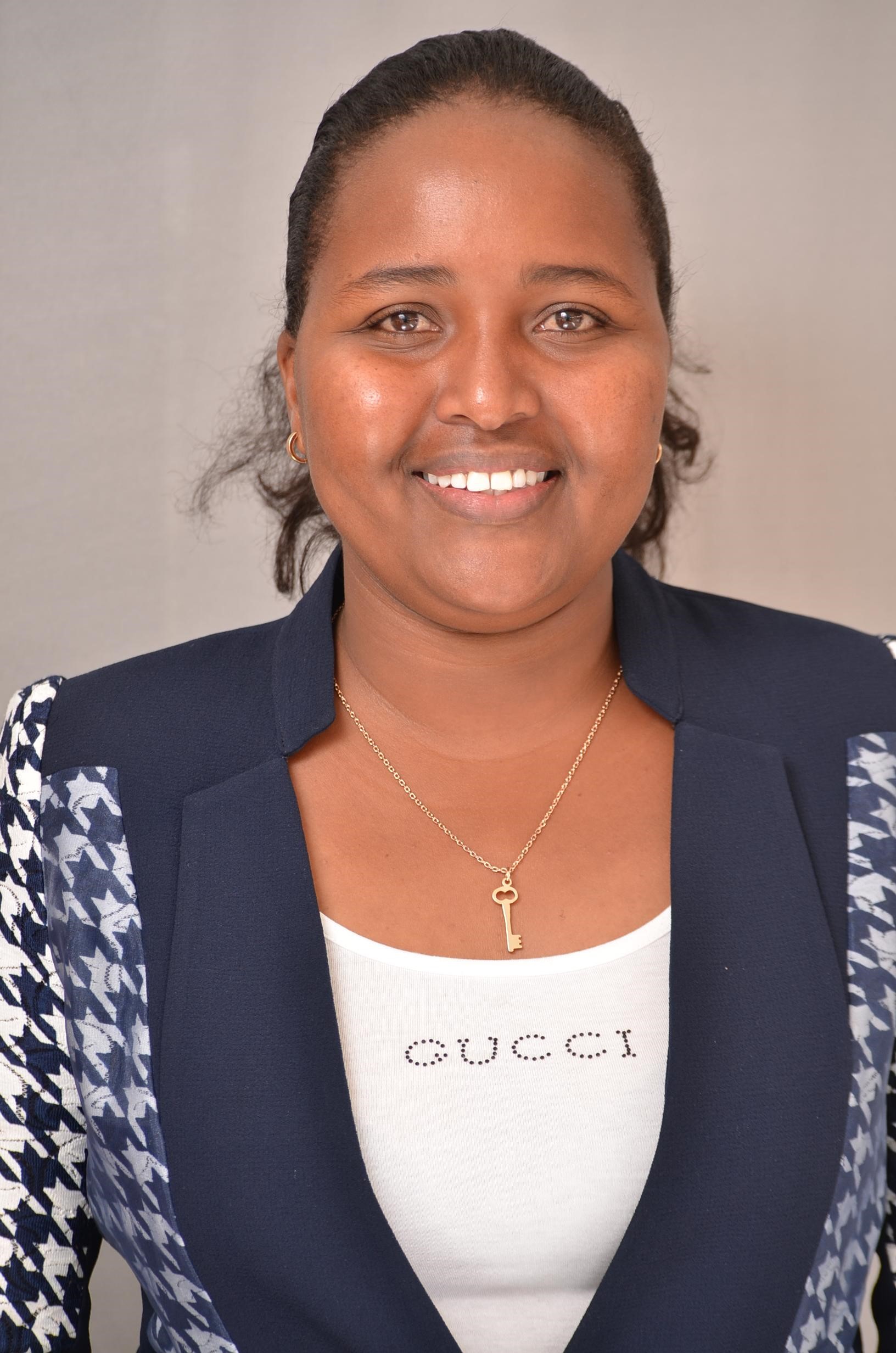 Naisula Lesuuda
Naisula Lesuuda
Hon. Naisula Lesuuda is Kenya's Member of Parliament for Samburu West. She entered the role in 2017 and was re-elected in 2022. From 2013 to 2017 she was a Senator in the Parliament of Kenya. Previously, Hon. Lesuuda was a consultant with USAID and a reporter and news anchor for Kenya Broadcasting Corporation. She received the prestigious presidential Order of the Grand Warrior for her efforts to bring peace among warring pastoralists through her work as a founding member of the Laikipia Peace Caravan. Hon. Lesuuda has a Bachelor's Degree from Daystar University.
Brian Murithi Humphrey
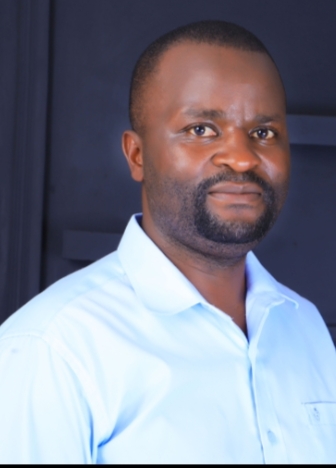
Brian Murithi Humphrey serves as the Intervention Supervisor at the Kenyatta University Women’s Economic Empowerment (KU-WEE) Hub, overseeing a cluster-randomized trial of a preschool enhancement program in Tharaka Nithi County, Kenya. He is responsible for overall oversight of intervention implementation and trains and supervises a team of mentors who in turn train and support preschool teachers. Brian has a M.Ed. in Early Childhood Education from Kenyatta University, Nairobi, and is currently studying for a PhD in Psychology at Bangor University, UK. He founded and served as co-director of Chuka Oasis Institute, which has been training Early Childhood Development (ECD) teachers at the certificate and diploma levels since 2009. Additionally, he has worked as a tutor, training teachers at the Presbyterian Teachers' College in Tharaka Nithi County.
Alex Mwaura
 Alex Mwaura
Alex Mwaura
Alex Mwaura is the Country Director at Digital Green, where he leads the implementation of AI-powered agricultural extension services in Kenya. Prior to this role, he served as Country Director at Food for the Hungry, Inc., managing the organization’s operations and programs in Kenya. He is currently pursuing a Doctor of Leadership in Global Perspectives at George Fox University. He also holds a Master of Science in Sustainable Development from the University of Sussex and a Master of Science in Organization Development from United States International University. He is passionate about building impactful teams, systems practice, and leveraging technology to improve the lives of marginalized communities and promote sustainable development.
Dorothy Naivasha
 Dorothy Naivasha
Dorothy Naivasha
Dorothy Naivasha is the current County Executive Committee Member overseeing the Education and Vocational Training Docket in Tharaka Nithi County. She holds a degree in Economics from Kenyatta University and a Master of Business Administration candidate specializing in Strategic Management. She has over seven years of experience in local government administration. Her role entails ensuring the effective implementation of county and national legislation, coordinating administrative functions, and providing strategic advisory support to the Governor and County Executive.
Her commitment to the education sector is evident in her efforts to enhance quality assurance by uniting key stakeholders to improve learning outcomes. She is also a passionate advocate for gender equality, actively integrating gender mainstreaming into County policies and programs and improving financial management, reporting, efficiency, and decision-making in Tharaka Nithi.
Dorothy is the Co-Principal Investigator for a pioneering randomized evaluation assessing the impact of a preschool intervention on child learning and women’s empowerment in Tharaka Nithi County. Her work reflects a strong dedication to inclusive, evidence-based governance and sustainable community development and a vision for improved learning outcomes for all learners in Kenya who stand to benefit from innovative interventions in the education sector.
Nancy Nelima Nafula
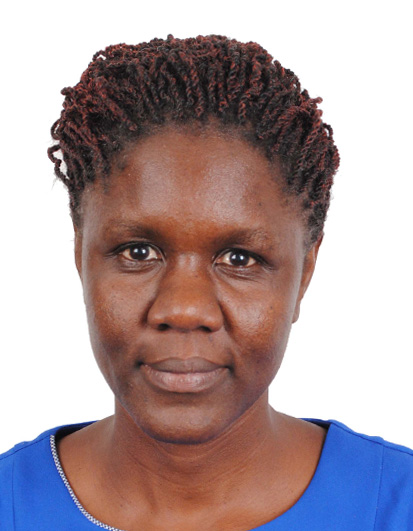
Nancy Nelima Nafula is a seasoned economist and institutional leader with over 23 years of experience at the Kenya Institute for Public Policy Research and Analysis (KIPPRA). She holds a PhD, MA, and BA in Economics from the University of Nairobi, and has undertaken executive training in Strategic Leadership and Senior Management at the Kenya School of Government. Currently serving as Acting Deputy Director, Governance, and Head of the Centre for Gender and Specialized Groups at KIPPRA, Dr. Nafula has led national research agendas, built key institutional departments, and overseen high-impact policy studies. She has a proven track record in strategic planning, organizational development, and multi-stakeholder engagement across government, academia, and civil society.
An accomplished scholar, she has published over 58 works, including peer-reviewed papers and commissioned policy reports. She has also mentored and graduated seven cohorts of young professionals, underscoring her commitment to capacity building and institutional sustainability. Dr. Nafula is an active member of the African Economic Research Consortium (AERC) and brings a results-driven, inclusive, and forward-thinking approach to public policy leadership
Michelle Neuman
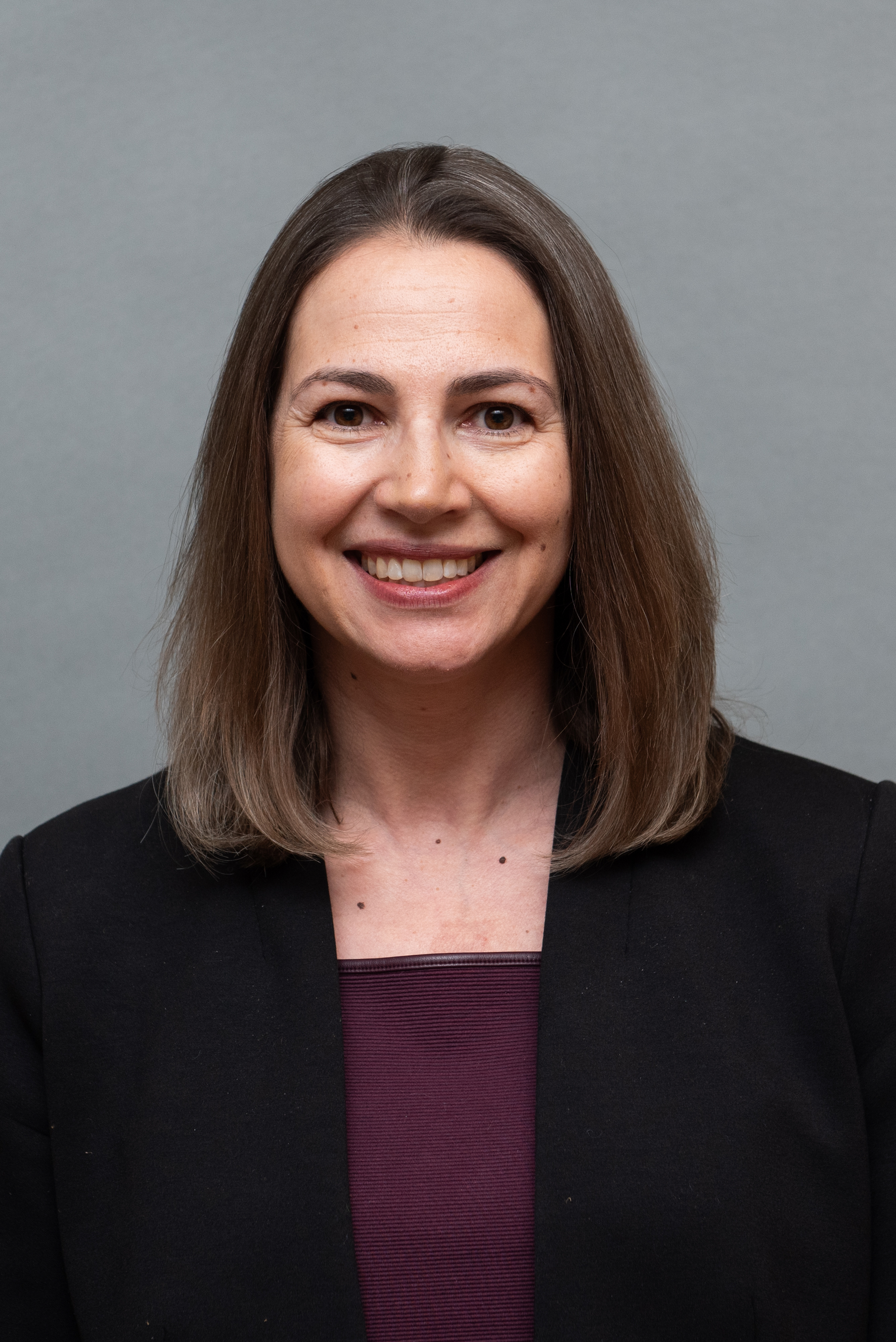
Michelle Neuman is an applied scholar with more than 20 years of experience working with governments and partners to improve young children’s outcomes in low-resource contexts. Currently, she is a Research Affiliate, Yale Inclusion Economics and an Impact Fellow at the Federation of American Scientists. From October 2023 to February 2025, she was embedded in the U.S. Agency for International Development (USAID), where she strengthened play-based early childhood and education programs in countries including Ethiopia, Tajikistan, and Uganda. Previously, at Results for Development (R4D), Michelle focused on projects related to the early childhood workforce, the politics of early learning, and digital tools to support parenting. Earlier in her career, she led the global early childhood development portfolio at the World Bank after successfully managing a regional program of analytical work and peer learning in 10 African countries. Michelle taught and advised graduate students in international educational development at the University of Pennsylvania for more than a decade. She holds a Ph.D. in Politics and Education from Columbia University and an A.B. in Public and International Affairs from Princeton University.
Eldah Onsumu
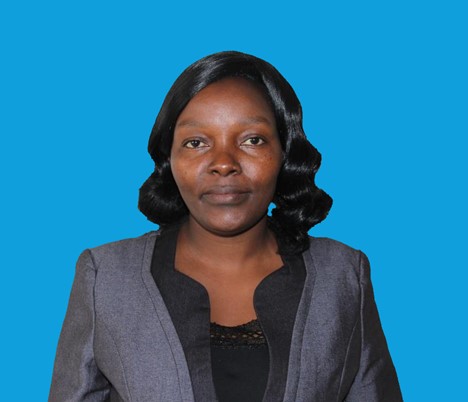 Dr Eldah Onsumu
Dr Eldah Onsumu
Dr Eldah Onsomu is the Acting Executive Director of the Kenya Institute for Public Policy Research and Analysis (KIPPRA) and serves as the Secretary to the Board. She provides technical guidance and capacity building on policy and strategy formulation to the Government of Kenya and other stakeholders, with the overall aim of contributing to the achievement of national development goals.
Before then, she was the Director, Economic Management at KIPPRA. Dr Onsomu’s research interests are in education, labour markets, health, poverty, public finance management and socio-economic policy analysis. She has published in various peer reviewed journals, book chapters and in policy analysis series in these thematic areas.
She holds a PhD and a Masters Degree in Economics from the University of Nairobi and a Bachelors Degree in Economics and Sociology from Egerton University, Kenya.
Simon Onywere
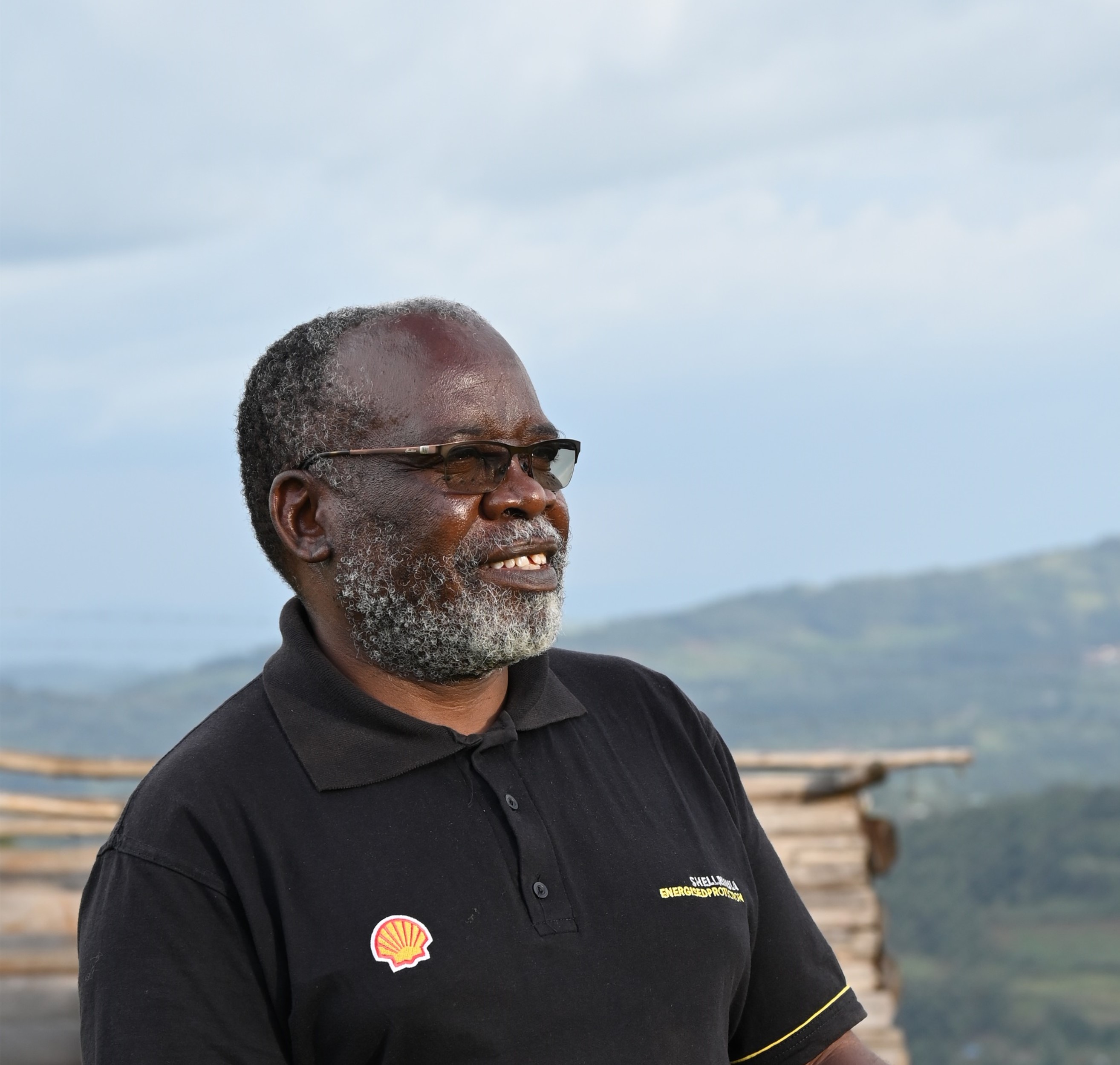
Simon Onywere is an Associate Professor Department of Spatial and Environmental Planning, School of Engineering & Architecture, Kenyatta University, and balances academic roles with impactful research and community engagement. He is currently leading a Gates Foundation-funded study on preschool intervention on effects of child learning and women’s economic empowerment in Tharaka Nithi County. In Oct. 2020 - March 2021 he was part of the Government Multi-Agency Technical Committee that assessed the socio-economic impacts of rising water levels in the Great Rift Valley Lakes, Turkwel Gorge Dam and Lake Victoria. As the ESRI GIS Education Users Ambassador in Africa since 2018, he promotes GIS use in education and championed ESRI’s 100 African Universities Programme in 2014. Onywere specializes in Integrated Environmental Management, developing participatory catchment management plans for communities. He led disaster risk management studies and training across East Africa, including IGAD states. Currently, he chairs KU's Global Tourism Resilience and Crisis Management Centre (GTRCMC - EA) board and actively contributes to the Early Childhood Development Education (ECDE) Network in Kenya.
Rohini Pande

Rohini Pande is the Henry J. Heinz II Professor of Economics and Director of the Economic Growth Center at Yale University. She is also the faculty director of Inclusion Economics at Yale. She is an elected member of the American Academy of Arts and Sciences, an Econometric Society fellow, and a former co-editor of American Economic Review: Insights. Pande received the 2018 Carolyn Bell Shaw Award from the American Economic Association for promoting the success of women in the economics profession and the 2022 Infosys Prize in Social Sciences. Formerly, Pande was the Rafik Harriri Professor of International Political Economy at Harvard Kennedy School.
Pande’s research, which has influenced policy in South Asia and globally, focuses on how institutions shape power relationships and patterns of economic, political, and environmental advantage in low-income countries. She is interested in the role of public policy in providing the poor and disadvantaged political and economic power, as well as how notions of economic justice and human rights can legitimize and enable such change. With Inclusion Economics India Center, she is working with Indian state governments on gender-inclusive rural development and digital policies and with Inclusion Economics Nepal, she is evaluating policies to strengthen quality of policy-making by elected local governments.
Pande received a PhD in economics from the London School of Economics, a BA/MA in Philosophy, Politics, and Economics from Oxford University, and a BA in Economics from Delhi University.
Nena Sanderson
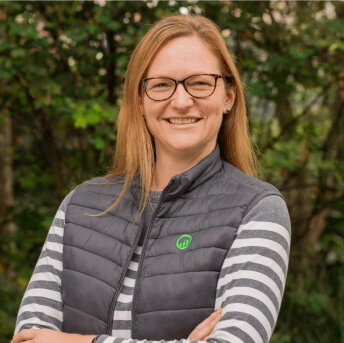 Nena Sanderson
Nena Sanderson
Nena Sanderson is Chief Product Officer at M-KOPA, a leading fintech platform that provides digital credit to underbanked customers in Africa. Nena leads M-KOPA’s product, impact, and sustainability work. Prior to M-KOPA, Nena served as MD, Tanzania at Zola Electric, a consultant at The Boston Consulting Group and a fellow at Acumen and TechnoServe. Nena holds an MBA from Stanford University and a BA from Duke University.
Simone Schaner
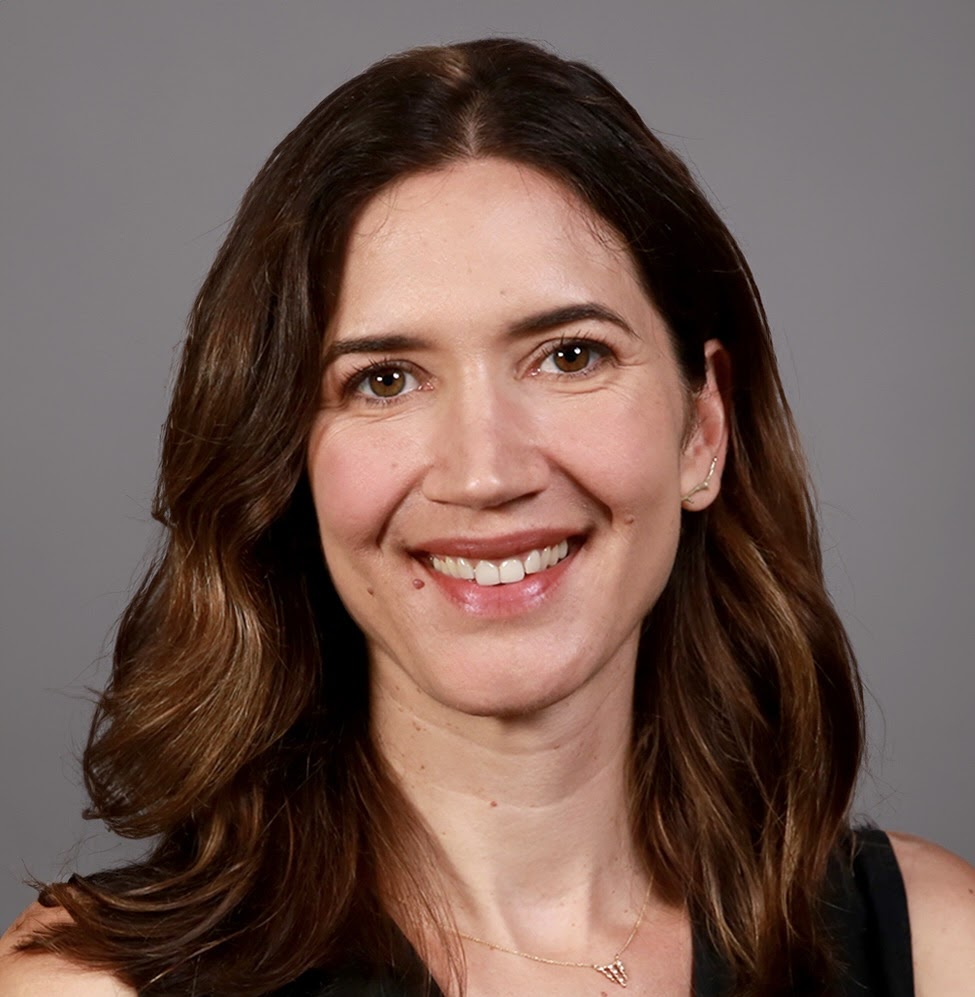 Simone Schaner
Simone Schaner
Simone Schaner is an Associate Professor (Research) of Economics at the University of Southern California. She studies how the social and economic environment shapes choices, elucidating how beliefs and power affect decision-making in households, economies, and societies. Her work studies economic mechanisms that contribute to inefficiency and misallocation in low-income settings and associated policy solutions, with a focus on labor, financial, and healthcare markets.
Dr. Schaner is the Scientific Director for Gender at Inclusion Economics. She is also an affiliate of the Bureau for Research and Economic Analysis of Development, the Abdul Latif Jameel Poverty Action Lab, the Center for Effective Global Action, and a Faculty Research Fellow at the National Bureau of Economic Research. She has a Ph.D. in economics from the Massachusetts Institute of Technology and an A.B. in economics from Princeton University.
Benson Wairegi
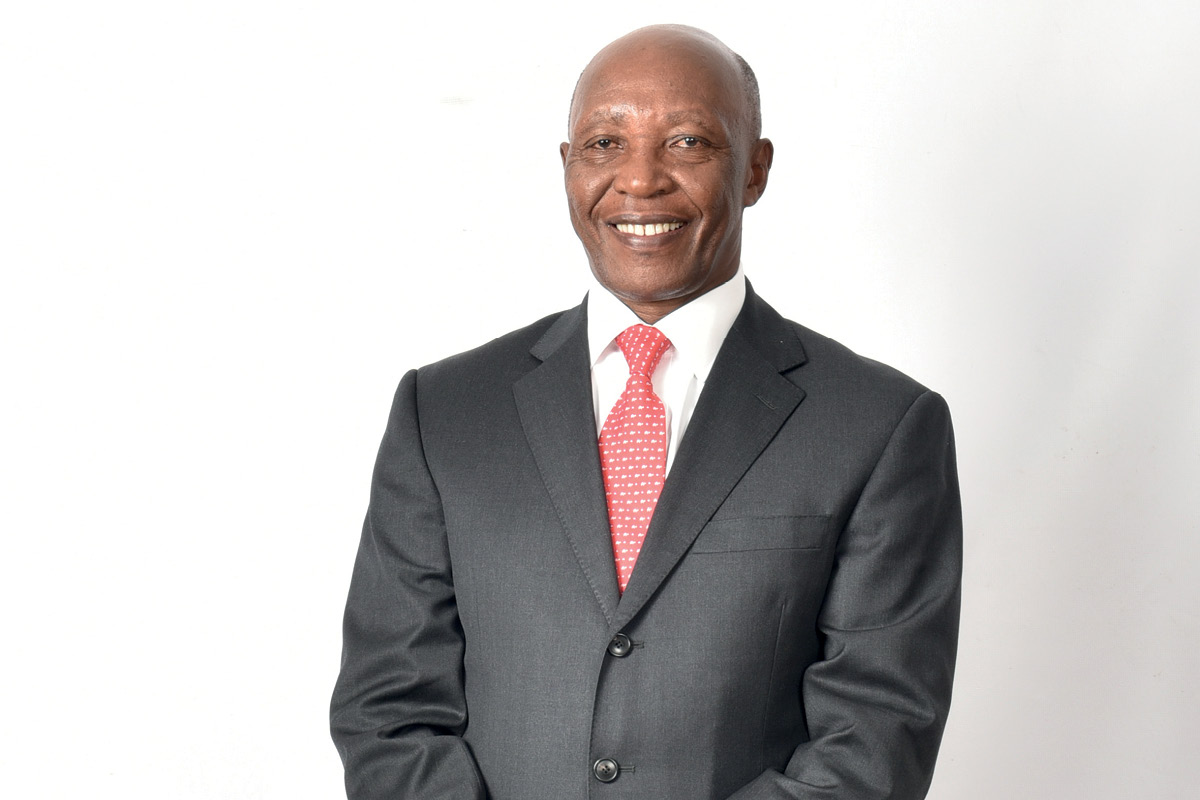 Benson Wairegi
Benson Wairegi
Dr. Benson I. Wairegi, B.Com (Hons) MBA, CPA(K), EBS, is a pioneer and seasoned veteran in the insurance and financial services industries, and an ardent advocate of purpose driven community and society building inclusivity through equitable educational initiatives.
He is a Non-Executive Director of HF Group, a financial services company publicly listed company at the Nairobi Securities Exchange, Chairman of its subsidiary Housing Finance Bancassurance Intermediary (HFBI), and Chairman of Microland Investments Limited, a private family office.
Dr. Wairegi is the immediate and former Group Managing Director and Chief Executive Officer of Britam Holdings PLC, an integrated financial services company listed on the Nairobi Securities Exchange with current operations across 7 countries in Eastern Africa, a position where at his helm he spearheaded the transformational growth and diversification of the company from a single country operation over a career spanning over 40 years, prior to which he worked at PricewaterhouseCoopers.
He has served on the boards of Britam Holdings PLC and its subsidiaries as an Executive Director and on various other boards including as a Non-Executive Director at Equity Group Holdings PLC, the largest commercial bank in Eastern and Central Africa, and Endeavor Kenya, an organization headquartered in New York that is pioneering high-impact entrepreneurship in growth markets globally.
He served as Chairman of the Council of Kenyatta University, the second largest public university in Kenya, from 2010-2013, and thereafter as Chancellor from 2013-2023.
He is a former Chairman of the Association of Kenya Insurers (AKI) and former Board Member of the Board of Trustees of the Insurance Training and Education Trust (ITET).
Dr. Wairegi holds a Bachelor of Commerce (Hons), (Accounting) from the University of Nairobi, a Master of Business Administration (Strategic Management) from the University of Nairobi, an Honorary Doctorate Degree (Honoris Causa) from Kenyatta University and is a Certified Public Accountant (CPA-K).
Madam Anne Wang'ombe
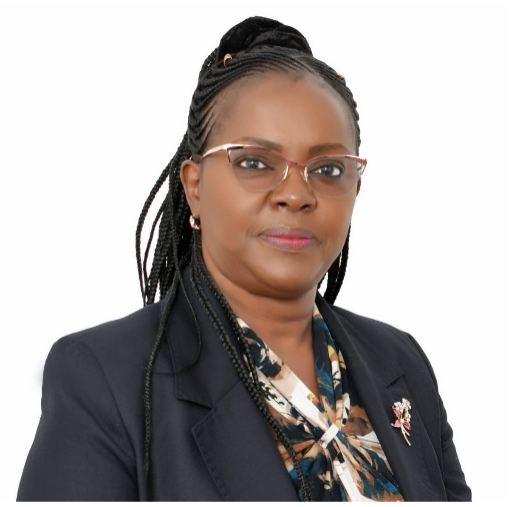
Madam Anne Wang'ombe is the Principal Secretary (PS), at the State Department for Gender and Affirmative Action, in the Ministry of Gender, Culture, the Arts, and Heritage in the Republic of Kenya. An accomplished leader, she has a proven track record in public service and a deep commitment to advancing the rights of marginalized groups, particularly in the realm of Gender Equality and Women Empowerment.
Ms. Wang’ombe holds a Master's degree in Education Administration and Planning from the University of Nairobi and a Bachelor's degree in Education from Kenyatta University. Additionally, she possesses an advanced certificate in Human Resource Management from Highpro Skills Training College in South Africa.
Throughout her career, Ms. Wang’ombe has held various influential positions within the public sector, including roles at the Kenya Revenue Authority Staff Pension Scheme and the Kenya Medical Research Institute, as well as serving as a lecturer at several universities and colleges.
In her capacity as Principal Secretary for Gender, Ms. Wang’ombe oversees the formulation and implementation of policies and programs aimed at promoting gender equity, empowering women, fighting Gender Based Violence and advancing affirmative action for disadvantaged groups. She is dedicated to fostering a culture of equality, respect, and opportunity for all individuals, regardless of gender or background.
Outside of her professional responsibilities, Ms. Wang’ombe is a passionate football fan, supporting community-based teams. She also enjoys hiking, volunteering, and reading in her free time.
Ms. Grace Wasike
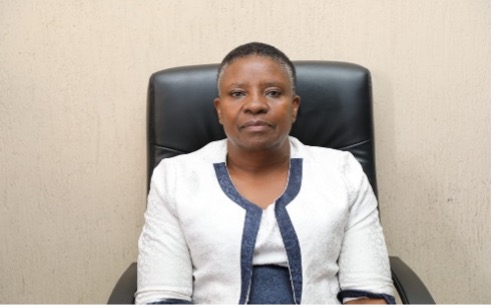
Grace Margaret Wasike is the Director responsible for Socio-economic empowerment at the State Department for Gender and Affirmative Action in Kenya. She has a Master of Development Specializing in Gender, Social Inclusion & Rural Livelihoods from Larenstein University, in The Netherlands, a Bachelor of Agriculture & Home-Economics from University of Egerton in Kenya and a Postgraduate Diploma (PGD) in International Relations from the University of Nairobi. Her major achievements at the State Department responsible for Gender include successfully coordinating the development and adoption of the National Policy for Women Economic Empowerment as well as development of the National Care Policy (that is currently under consideration by the Cabinet). Ms. Wasike has previously worked as a Gender expert worked at the Ministries of Agriculture, East African Community and Mining.
Judith Waudo
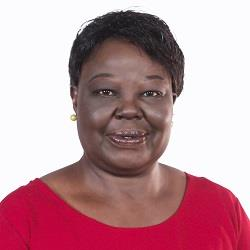
Professor Judith Waudo holds a PhD in Nutrition Education from the University of Edmonton, Alberta, Canada. She is currently the Director of Gender Equity and Empowerment at Kenyatta University and the hub leader of the Kenyatta University Women Economic Empowerment hub. She is a Full Professor in the Department of Food, Nutrition, and Dietetics. She has 38 years of teaching and research experience and is the author of fifty publications. She is the chair of the Technical Committee for the African Centre for Transformative and Inclusive Leadership Center based at Kenyatta University. Currently, Professor Waudo heads the Bill & Melinda Gates project on "what works to improve women's economic empowerment in Kenya". She has participated in the development of the UN women's economic tools and the review of the Kenya National Policy for Women's Economic Empowerment. In addition, she has been involved in research on sexual harassment. Administratively, Prof Waudo has 30 years of experience in leadership. In addition, to the above-mentioned responsibilities, Prof Waudo sits on many Vice Chancellors committees such as chairperson, of the University Ranking Committee and member of the University Bursary Committee.
Janette Yarwood
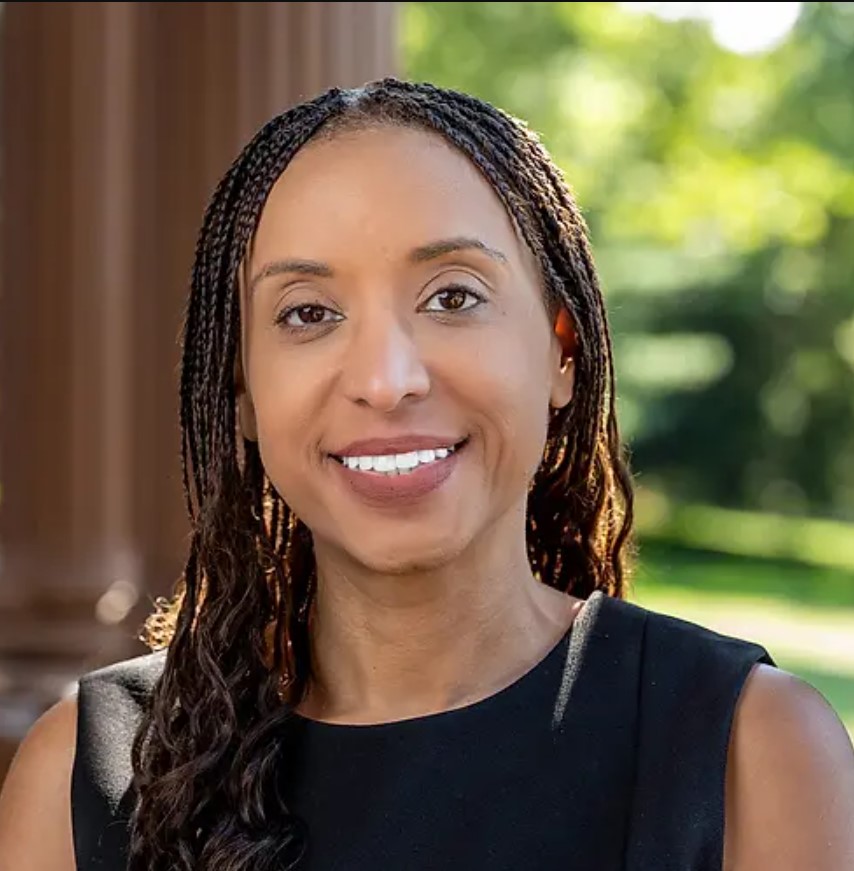
Janette Yarwood leads Yale’s engagement in Europe, Middle East, and Africa through the Office of International Affairs. In this role, she works closely with faculty, staff, students, and alumni to deepen Yale’s global partnerships, support academic and research initiatives, enhance recruitment and admissions outreach, and strengthen alumni networks across the three regions. Janette brings extensive experience in global policy and diplomacy to Yale. Most recently, she served as Senior Advisor to the Assistant Secretary of African Affairs at the U.S. Department of State, where she focused on strategic planning, academic outreach, and interagency coordination. During her tenure, she also volunteered and deployed to Doha, Qatar, to support the Afghanistan evacuation effort. At the State Department, Janette also served as Chair of Africa Area Studies, providing strategic leadership, designing curriculum, and managing the Sub-Saharan Africa Area Studies program. Prior to that, she was a Senior Professional Staff Member on the House Foreign Affairs Committee, where she covered all geographic regions and played a key role in shaping congressional engagement on international issues. She also served as Staff Director of the House Subcommittee on Africa, Global Health, Global Human Rights, and International Organizations, leading the subcommittee’s foreign policy agenda, organizing congressional hearings, developing legislation, planning oversight delegations, and serving as a liaison to the State Department, National Security Council, foreign diplomats, and academic institutions. Janette also managed the foreign affairs portfolio for the Chair of the Congressional Black Caucus. Her work included travel throughout Africa, Europe, and the Middle East regions including to Israel, the West Bank, and Jordan to inform U.S. policy and oversight efforts. Her broad experience and academic training give her a uniquely interdisciplinary and global perspective. She is a Fulbright Scholar and holds a Ph.D. in Cultural Anthropology from the Graduate Center of the City University of New York.